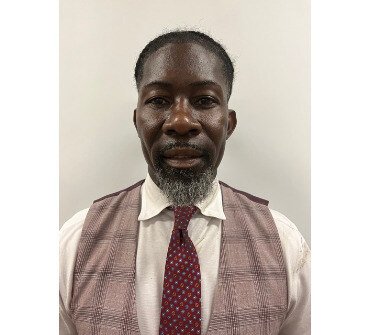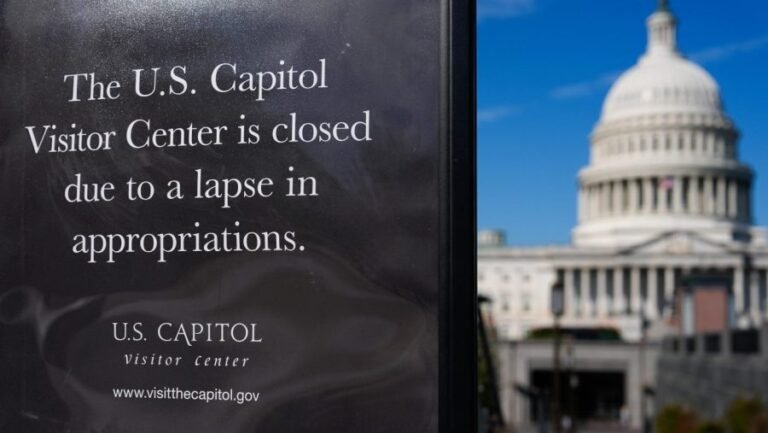
The immigration arrest of Des Moines’ school superintendent Ian Roberts was the stuff of dark comedy. The supposedly mild-mannered educational policy savant, who had preached “radical empathy” to students and staff, ditched his district-issued car as he fled ICE agents on foot. He left behind a loaded Glock 9mm handgun, a fixed-blade hunting knife and a brick of “bug out” cash apparently abandoned in his panic.
Additional details released since make “Dr. Roberts” look every bit the congenial charlatan he seemed. The Associated Press reported that he was also funneling significant district funds into a consulting firm that also had him on its payroll.
But the real scandal is the breezy nature with which the school board feigned ignorance of the true identity and past of their six-figure employee, who was on the lam from the law and ducking a deportation order.
Sadly, the Des Moines Unified School District is in good company when it comes to gaming the vetting process. The truth is that the school board had done just enough due diligence not to want to know any more than it had to.
Most Americans are unaware of just how empty the promises have been over the decades — made by both Republican and Democratic presidents — to keep bad actors from slipping in and ensure that those permitted to live and work in the U.S. are thoroughly vetted.
Phrased less generously: The government is lying to you.
I know this because, after years of working in Los Angeles media, I steered my career into the emerging field of business intelligence and investigations — a fancy term for corporate spook work. In 2010, I joined Sapient Investigations, Inc., as a senior staff investigator and spent the next 12 years working for the boutique full-service firm. A constant component of my casework included deep-dive due-diligence background checks for an array of private equity outfits, venture capital groups, hard-money lenders and high net worth individuals.
Those clients paid huge retainers to properly vet individuals — a process which, when done right, reveals reputational risks and course-of-business perils. The criminal histories, civil litigation patterns and financial health profiles we unearthed, along with other data, sometimes helped our clients avoid disaster by exposing secrets, deceptions and even secret lives of those with whom they were considering business relationships.
To pierce the veil, investigators employ a dizzying array of exclusive and proprietary database utilities that can deliver all manner of information on Americans — and that’s without even having to leave the office to burn shoe leather in the field. Investigators today are able to recover and assemble a holistic snapshot of an American’s life, red flags and all — bad divorces, college DUIs, restraining orders, old tax liens, high-voltage fraud lawsuits and oh so much more.
But the key word in all of that is “American.”
Absolutely central to all of this vetting is that someone live in a nation with a longstanding First World infrastructure that reliably collects and preserves key data. It requires a robust and complete set of court records, police incident reports, corporate and tax filings, along with all sorts of other ephemera.
Once outside the country, even in the other First World societies around the globe, collecting and assessing such galaxies of data becomes much more challenging. The data available are considerably more limited. What is merely challenging in America under the best circumstances can be quite daunting in peer nations such as Australia, Canada, France, Japan or the United Kingdom. And outside of those countries and a few others — well, forget about it. It’s nearly impossible to vet anyone.
The suggestion that the tens of millions of migrants who have made landfall in America in the 21st century, legally or otherwise, have been or can be seriously vetted through comprehensive background checks is magical thinking. We simply cannot screen, using the metrics with which we can screen Americans, migrants marching out of a developing world defined by subsistence economies and corrupt and failing governments.
In many cases, there is no reliable paper-trail to review, nor any system for collecting and maintaining records.
As the Des Moines case illustrates, even something as simple as a genuine date of birth and age can be elusive. Roberts had presented conflicting dates of birth seeded across multiple documents. Such a deception is not too hard to pull off — hence the headlines about 20-something migrants using forged documents to attend American high schools, only to be discovered later after some criminal misadventure.
The Des Moines Unified School District didn’t care too much about whatever may have been lurking in Roberts’ background. He was the symbolic hire they wanted to show off. And at the end of the day that was the school board’s choice.
But what they don’t get a pass for is to pretend now that they somehow did their level best to determine the factual background and actual history of the man who was carrying fat stacks of cash and a Glock through their school properties on the taxpayers’ dime.
With tens of millions of immigrants in every corner of the U.S., Americans are going to have to start talking about who should be allowed to stay and who must be made to leave. And that conversation will have to acknowledge two realities: We do not know who these people really are, and we must make our collective decision with that in mind.
Mark Cromer is a journalist and author of “California Twilight: Essays and Memories of the End of the Golden State.”


